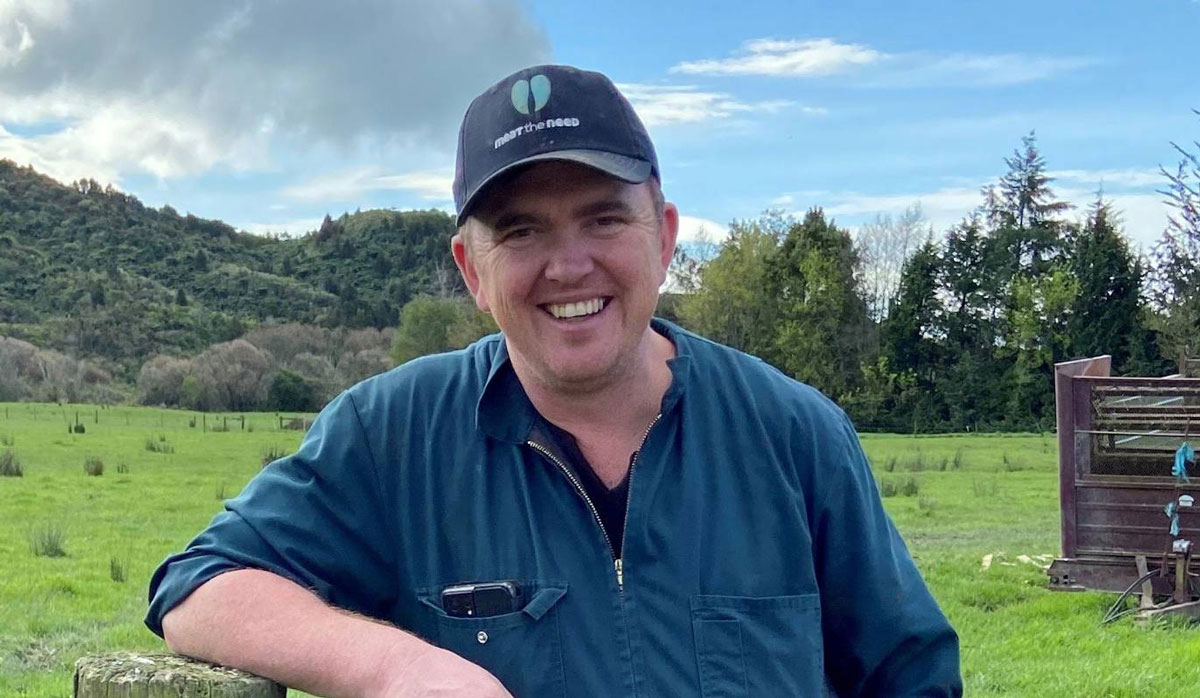Farmer confidence dips slightly, but positivity still dominates
Farmer confidence has taken a slight dip according to the final Rabobank rural confidence survey for the year.
The 'longevity of uncertainty' is what's driving the lowest level of farmer confidence in more than a decade, says farming leader Ben Allomes.
He says this started with Covid and has just got worse.
Allomes was commenting on a survey by Federated Farmers - taken before Fonterra dropped its forecast milk price mid-point to $7/kgMS - that showed 81% of respondents believe the current economic situation to be bad and only 1% to be good.
Only 3% of those surveyed believed the situation would improve in the next 12 months, while 73% believed it would get worse.
The results of the survey reveal that while 27% of respondents reported making a profit, 27% said they were making a loss.
Another worrying statistic from the survey is that 22% of respondents expect to reduce production in the next year and only 14.5% expect to increase their production.
The survey covered 1,000 sheep, beef, dairy and arable farmers nationwide.
Allomes believes it all started for him when Covid struck.
"I remember sitting on a hill in the middle of the first lockdown and saying, are they going to shut down the dairy factories or the meat works and am I going to have shoot my cull cows and bury them on farm, but I can't get a digger," he told Dairy News.
"That was the level of risk we were facing and to top it off we were in a drought," he says.
Allomes says since then the primary sector has farmed its way through supply chain issues, major weather events, inflation and high interest rates, all of which create uncertainty. He says there are few options left for farmers to deal with the situation they now face.
"There are no more levers for farmers to pull to deal with this," he says.
Allomes believes there is something of a hiatus in the rural sector with the election a matter of weeks away. He says, deep down, farmers believe there will be change but what that change might look like is another thing. The hope is the government after the election will make life easier for farmers or at least give more certainty.
"But there is still that uncertainty over whether we trust any of them anymore," he says.
One farmer recently joked that Labour ignores farmers because they don't vote for them and National ignores them because they know they will vote for them.
Allomes says people talk about the problem of "regulations", but few are specific about which regulation is the problem.
He says he doesn't spend a lot of time dealing with regulations as such, but he must record data and the way of doing this could be improved.
"Interestingly, the younger farmers coming through don't see regulation as regulation - they just see it as part of their job.
"It's about recording data which is part of their job.
"They are curious and that's how they operate and don't see it as an onerous task," he says.
Feds' View
Federated Farmers president and dairy farmer, Wayne Langford, says his organisation has real concerns about farmer wellbeing and what this might mean for farming families, rural communities and the wider NZ economy.
 |
|---|
|
Federated Farmers president Wayne Langford. |
He says farmers are dealing with a lot now with high interest rates, huge inflation, and a steep decline in both meat and milk prices they receive for their products.
Langford says farmers are facing an unprecedented level of regulatory change that is heaping on costs, undermining profitability, and creating huge uncertainty for farmers.
"Unfortunately, all these challenges have arrived at the same time, which just compounds the pressure farmers are feeling - it's just not sustainable," he says.
Langford says the deterioration in farmer profit has occurred at frightening speed.
He says this time last year, just 3.5% of farmers reported making a loss. That figure jumped to 27% in this survey, which was conducted prior to Fonterra announcing its payout downgrade.
"This should serve as a wake-up call for all political parties, banks, and processors that something needs to urgently change. There needs to be a real focus on reducing the costs and uncertainty farmers are facing," he says.
Dairy Women's Network (DWN) has announced that Taranaki dairy farmer Nicola Bryant will join its Trust Board as an Associate Trustee.
Rural Women New Zealand (RWNZ) says it welcomes the release of a new report into pay equity.
Red meat exports to key quota markets enjoyed $1.4 billion in tariff savings in the 2024-25 financial year.
Remediation NZ (RNZ) has been fined more than $71,000 for discharging offensive odours described by neighbours as smelling like ‘faecal and pig effluent’ from its compositing site near Uruti in North Taranaki.
Two kiwifruit orchards in the Bay of Plenty and one in Northland are this year's finalists for the Ahuwhenua Trophy competition.
OPINION: Staying with politics, with less than nine months to go before the general elections, there’s confusion in the Labour…
OPINION: Winston Peters' tirade against the free trade deal stitched with India may not be all political posturing by the…